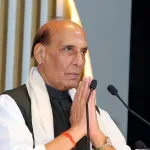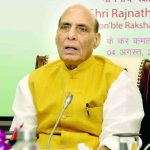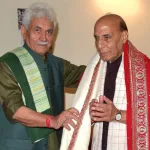Human beings are not just social animals but also storytelling animals. Bizarre and hyperbolic as it may sound, we all see ourselves as characters (mostly lead) in a larger-than-life story. It is larger-than-life quite literally. After all, within our lifetimes, we tend to worry about things that wouldn’t matter when we are dead because we wouldn’t know (let alone care) about them! Having children to succeed us, building a monumental family home, creating a philanthropic trust, a political party, or what some would roughly term a ‘legacy’. All of these stem from our unique desire to tell stories about and beyond ourselves.
We want to tell good stories about ourselves, and we crave to be part of great stories. In our weddings now, we love to act like film stars on big screens. We conduct photo shoots imagining ourselves not from our own perspectives but from a third person’s, like watching a romantic movie from an external eye. We wish not just to be an audience of cinematic stories that are beautiful, fascinating and completely untrue but also to create our own. Roles have been reversed. Cinema, which began with the idea to mimic society, has become such a powerful tool of storytelling, that it is society that now imitates cinema.
We think of our and others’ lives in terms of stories. A story must have its share of enemies, struggles, battles and triumphs. Nothing captures our imagination like these elements in a story, and that is why novels, movies and religions have immense cultural appeal. They mix all the good ingredients of a story and often create a cultural maelstrom by resonating deeply with the masses. People then start viewing themselves as part of such powerful and enrapturing storylines. They don’t just follow their characters but also closely imitate their style, struggles and mannerisms.
Epics, while centrally being stories, are produced on a much larger level in the form of mass cultural and literary upheavals. Just as religion is often seen as the “collective sigh of the masses”, an epic could be seen as their collective literary heave. These aren’t thus written overnight but evolve through centuries of iteration. Epics operate on a grand scale. They include myriad characters, their battles, music, dance, mockery, and, of course, a consistent thread of a central storyline. Through epics, a culture often expresses its worldview of politics, morality, aesthetics and divinity. Whether it is the Mahabharata in India or the Odyssey and Iliad in ancient Greece, epics strongly inform the value systems of a society. Whether the characters are real or imagined barely matters. Their stories supercharge the imagination of the public, who then begin to identify with them, imitate them and often worship them. Myth becomes more powerful than reality.
Epics have certain well-established elements each of which interacts very uniquely with its recipients.
A Hero
The central figure of any story, the hero is viewed in a positive light, capable of great feats of adventure, kindness, intellect, morality, courage and creativity. The imagined hero is a representation of all that a culture imagines to be good in itself. It is a collective embodiment of a culture’ highest human achievement. Mass cultural pride and support thus rally behind a hero when he takes on an adversary.
An Adversary
A strong and intimidating adversary is a prerequisite for instilling a sense of fear or doubt in the mind of a hero. Goliath and Ravana are both powerful epic adversaries that took an immense amount of the hero’s effort to vanquish. A weak adversary will never be worth the effort of a widely admired hero –– the very embodiment of cultural pride.
A Journey
There is a strange sense of psychic accomplishment in journeys. Every epic or religious practice has ‘a journey’ as its central leitmotif: the exodus in ancient Jewish tradition and the Hijra in Islamic thought are powerful tropes with the ability to galvanise the masses. The practices of holy pilgrimages across cultures stem from the same desire to undertake epic journeys. The idea of a ‘Yatra’ has time and again been explored and exploited in Indian politics. An epic journey signifies the very inherent human desire to move –– to distant lands, uncharted seas, untamed wilderness and dangerous gorges ––– and in the process bring about a deep, psychic change or cleansing in oneself.
Symbols
Cultural symbols over the years have taken the form of ‘currency of ideas’ in epics. They are the condensed representation of shared experiences of a culture. They may emerge in the form of a place, person, gesture, animal or an inanimate object. As these symbols stand out in epics, they often evoke overwhelming feelings of reverence and worship. They’re, after all, an embodiment of experiences that a culture holds dear.
Poetry and music
One of the most deeply pervasive expressions of mythology is poetry and music. The rhythmic qualities of poetry make remembering and propagating an epic easy and enjoyable. Singing and dancing to its tunes is only a further extension of this joyful rendering of the epic. The ecstasy of recitations often makes people burst into the most disjointed dances, or emulate the cosmic revolutions by spiraling unhinged. It is in these very moments then that human bodies demonstrate their oneness with the cosmic vibrations.
Why epics matter
Today, more than ever before, epics matter to us individually and in our societies. We have begun to ask, what story is a particular culture trying to tell about itself? Who are the great heroes of this culture that they wish to imitate? What are the main qualities of the hero that they draw inspiration from: courage, kindness, wisdom or violence?
Epics flow like rivers of cultural effusion in which we all find ourselves immersed and swimming in a unanimous direction. They transcend millennia. They cover vast spaces. They remain the most powerful invisible force to orient and shape people’s attitudes, convictions and behaviours. Most of all, epics act as a social glue by giving us common reference points and a shared understanding of our world.
Could cultures then evolve with some amount of reshaping of these epics? Could this have answers for the grand challenges of our time ––environment, education, inequality? Or could shaping and reshaping our collective stories be a tool for something sinister in a political setting? Could it be somewhat of a social equivalent of genetic engineering, only on a much larger scale? Questions like these have only begun to surface and can only be addressed with a deeper understanding of our relationship with our epics.
(Author is Doctorate Researcher at the University of Leeds. Feedback at: [email protected]; [email protected])








